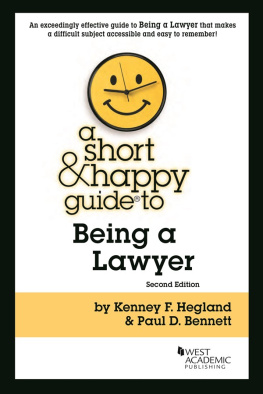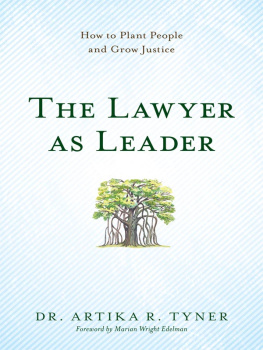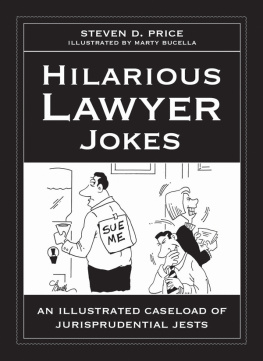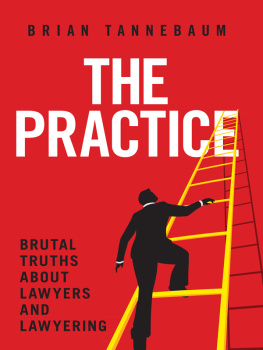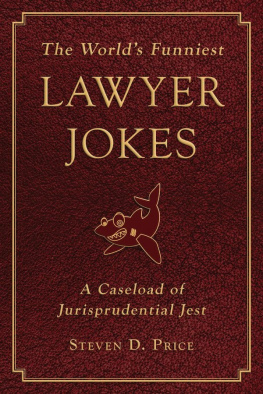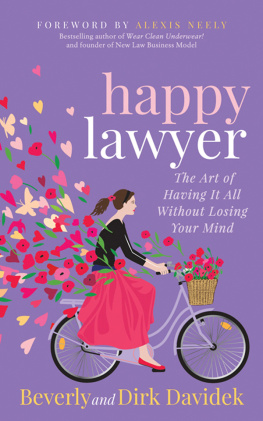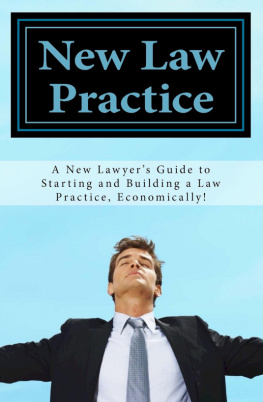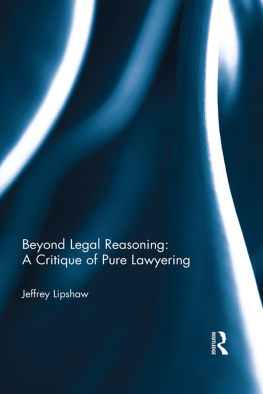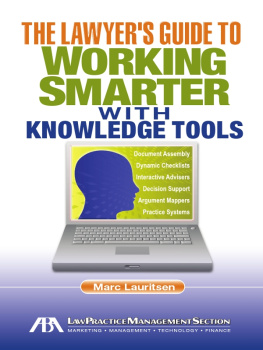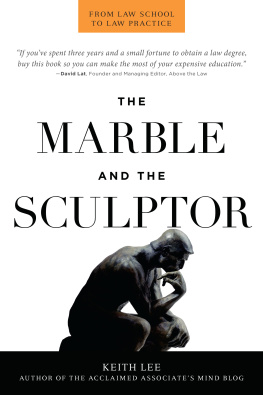West Academic Publishings Emeritus Advisory Board
Jesse H. Choper
Professor of Law and Dean Emeritus
University of California, Berkeley
Yale Kamisar
Professor of Law Emeritus, University of San Diego
Professor of Law Emeritus, University of Michigan
Mary Kay Kane
Professor of Law, Chancellor and Dean Emeritus
University of California, Hastings College of the Law
Larry D. Kramer
President, William and Flora Hewlett Foundation
James J. White
Robert A. Sullivan Emeritus Professor of Law
University of Michigan
West Academic Publishings Law School Advisory Board
Joshua Dressler
Distinguished University Professor Emeritus
Michael E. Moritz College of Law, The Ohio State University
Meredith J. Duncan
Professor of Law
University of Houston Law Center
Rene McDonald Hutchins
Dean and Joseph L. Rauh, Jr. Chair of Public Interest Law
University of the District of Columbia David A. Clarke School of Law
Renee Knake Jefferson
Joanne and Larry Doherty Chair in Legal Ethics &
Professor of Law, University of Houston Law Center
Orin S. Kerr
Professor of Law
University of California, Berkeley
Jonathan R. Macey
Professor of Law,
Yale Law School
Deborah Jones Merritt
Distinguished University Professor,
John Deaver Drinko/Baker & Hostetler Chair in Law
Michael E. Moritz College of Law, The Ohio State University
Arthur R. Miller
University Professor, New York University
Formerly Bruce Bromley Professor of Law, Harvard University
Grant S. Nelson
Professor of Law Emeritus, Pepperdine University
Professor of Law Emeritus, University of California, Los Angeles
A. Benjamin Spencer
Dean & Chancellor Professor of Law
William & Mary Law School

Being a Lawyer
Second Edition
Kenney F. Hegland
Late James E. Rogers Professor of Law, Emeritus
Paul D. Bennett
Clinical Professor of Law
A SHORT & HAPPY GUIDE SERIES

The publisher is not engaged in rendering legal or other professional advice, and this publication is not a substitute for the advice of an attorney. If you require legal or other expert advice, you should seek the services of a competent attorney or other professional.
a short & happy guide series is a trademark registered in the U.S. Patent and Trademark Office.
2012 Thomson Reuters
2021 LEG, Inc. d/b/a West Academic
444 Cedar Street, Suite 700
St. Paul, MN 55101
1-877-888-1330
Printed in the United States of America
ISBN: 978-1-64708-412-7
To KFH,
Colleague, mentor, friend, obedient servant, and the man with the butter. You are greatly missed.
AND THATS ALL FOLKS.
Acknowledgments
Once we start, it would be hard to stop. We have learned so much from colleagues, from scholars who have written in the field, and from our students who have repeatedly insisted that we articulate our insights. And, of course, from Wikipedia.
Kenney Hegland passed away as we were completing this second edition. Many, many thanks to him.
Special thanks to Barbara Sattler who graciously supported the completion of this edition. Special thanks to Sylvia Lett and Barbara Bergman. And very special thanks to Bill Boyd, Jamie Ratner, and Mohyeddin Abdulaziz the Gang Who Couldnt Bid Straight great friends, sounding boards and guardians of sanity.
It is better to have loved and lost ...
Why Short and Happy?
I started with a girl with some flowers in her hand walking in a room in a country house. Sentences simply grew into paragraphs, and paragraphs became a chapter. I knew I had started a novel but I didnt know what novel it was.
Ian McEwan on writing his novel Atonement
Maybe you have, or soon will, walk across a room with a law diploma in your hand. You will know you have started a career but you wont know what that career will be. As the philosopher Yogi Berra said, If you dont know where you are going, youll end up someplace else. The happy news is that someplace else might be awesome.
Lucky you. We are absolutely jealous.
Forget the lawyer jokes . John Adams, our first Vice President and second President, was a prime mover, perhaps the prime mover, behind the American Revolution. No John Adams, no American Revolution, and you would still be studying the English estate system, O to X for life, remainder in fee to Y. What was Adams first love? Political theorist? Revolutionary? President? No. Lawyer!
Now to what higher object, to what greater character, can any mortal aspire than to be possessed of all this knowledge, well digested and ready at command, to assist the feeble and friendless, to discountenance the haughty and lawless, to procure the redress of wrongs, the advancement of right, to assert and maintain liberty and virtue, to discourage and abolish tyranny and vice?
Sure, there will be disappointments and difficulties. Jobs are hard to find, clients can be demanding and unappreciative, and opponents, jerks. But remember all you have and will accomplish and that you are part of a grand profession, you and John Adams.
And Nelson Mandela, Thurgood Marshall, Mohandas Gandhi, as well as Jerry Springer. Well, maybe not everybody with a law degree changes the world. But some do. Why not you?
This is a short and happy guide to being a lawyer. We will cover a lot of territoryinterviewing, counseling, discovery, negotiating, and trying lawsuits. Others have books on these topics; what gives?
We provide a quick overview of the basic techniques. This format leads to quick reading; dont leave home without a sense of how your various tasks fit together: knowing something of cross-examination will inform client interviewing and knowing something of negotiation will make you a better counselor. Further, this format allows for easy review when the time comes. Before your first trial there is no time to read a lengthy book on trial practice.
This is to take nothing away from the books of these topics. Read them. The more you learn, the more you know, the more you can learnwhat once was puzzling suddenly makes sense. One of the best trial lawyers we know attends every trial workshop she can, even those for beginners. She always learns something new. One of the best parts of being a lawyer is that you will always be learning something new.
But are basic techniques enough? Theyll get you by. Dr. Steven Rosenberg, then Chief Surgeon of the National Cancer Institute, wrote of his early days:
Even if I lacked the specific skill to perform particular operations, such skills can be readily developed if one knows the basic techniques. Judgment is harder to develop.
How to Develop Judgment?
Practice. Before you send an email, cross-exam a witness, respond to an offer, realize that you have choice to make and that all choices entail inconvenient facts, things that go bump in the night. What can go wrong and why arent other ways the better choice? After you sent your email, questioned the witness, responded to the offer, pause to ask yourself how your choice worked out. Self-reflection is the best teacher.
Keep up on current eventsall of us, clients, opponents, judges, are buffeted by news, sports and, unfortunately, TMZ and E.T... If you love intellectual problems, you loved law school; if you love people, youll love practice.
To learn about people, learn about the world. As Justice Felix Frankfurter [isnt that just the best name?] wrote in a letter to a student:

